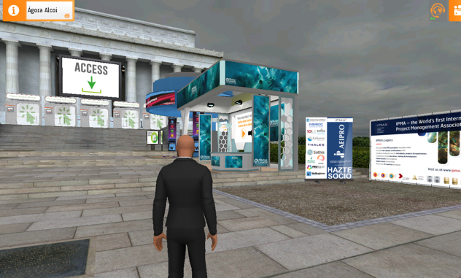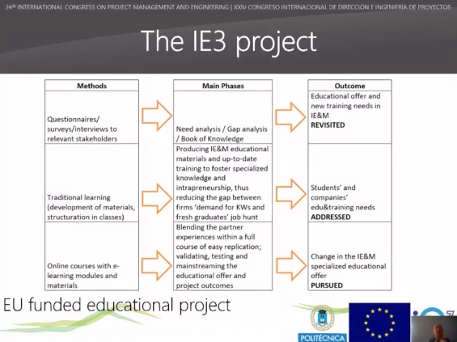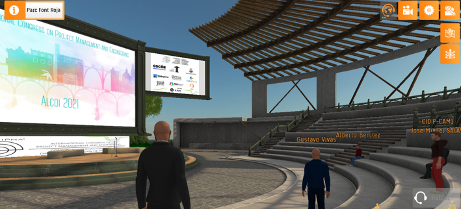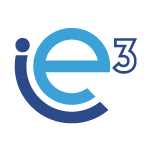
The IE3 partners have agreed on disseminating the project outcomes through national conferences, at least once per year. Therefore, the UPM has chosen the 24th International Congress of Project Management and Engineering, promoted by AEIPRO (https://www.aeipro.com/es/noticias-cidip/1209-programaci%C3%B3n-de-sesiones-del-cidip-2020) as the target for 2020.
We started the paper by justifying the interest of addressing all the technical and managerial challenges that societal and technological transformations, including the i4.0 paradigm, requires to increase the so-called knowledge workers (KWs). A critical mass of KWs is required to fill the gap between the ever-increasing deficit between demand and offer in the field of Industrial Engineering and Management (IE&M) in Europe. Answering this problem will require to combine organizational methodologies for the production of goods and services and new digital technologies in the implementation, addressing the I4.0 paradigm. It will require to design and test innovative courses (both classes and e-learning modules) in IE&M, creating new curricula for university students and industry workforce and eventually contributing to reducing the shortage of KWs in the manufacturing sector. Therefore, the presented paper aims to identify innovative characteristics and paradigms able to close the existing gap in IE&M, creating new curricula for KWs in the manufacturing sector. In this context, a European initiative named IE3 under the Erasmus + program was introduced.

Source: Video of the presentation being distributed through youtube©
One key aspect for the work was to accurately identify the existing interactions, because as presented in this paper, there are relevant connections between dimensions and strategies, like servitization of industry, PSS, social willingness, and digital transformation of organizations even further than what I4.0 is looking to deploy.
The main contribution of this paper is to present the proposed architecture to reach the competence level and to formulate an ontological approach, including a graph-based representation for such competences. The derived framework is not just focused on theoretical content, but also it allows the assessment of practical abilities through a comprehensive and transparent configuration.
Because of the COVID-19 issues, the conference went fully under the 3D virtual reality, as you can see in the pictures below, which is, for instance, one interesting example of digitalization.



